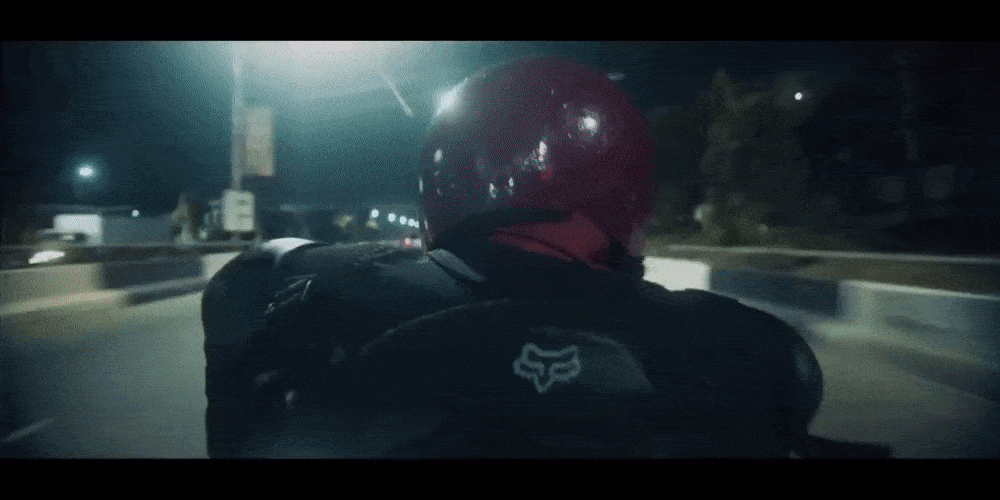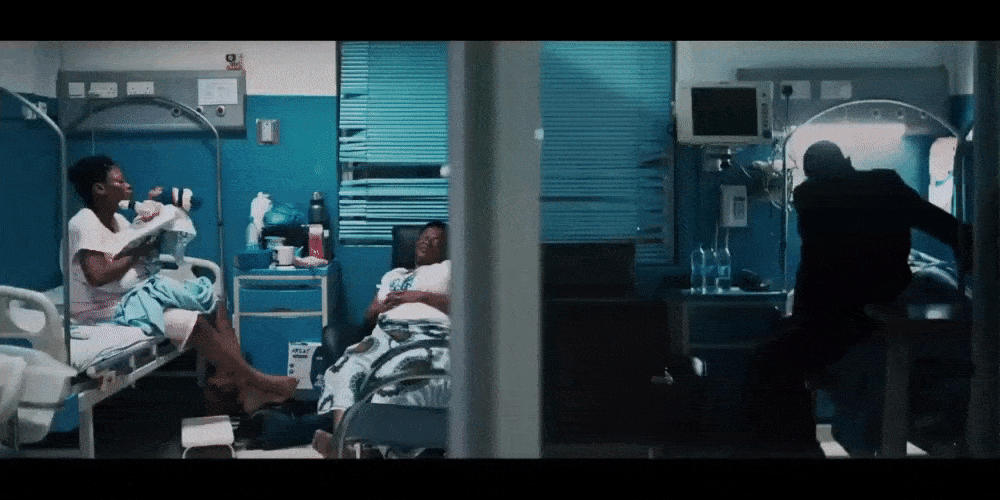"Blood Rider" shortfilm is a cinematic mirror for Nigeria's precarious healthcare system
The opening sequence for “Blood Rider” is genius. An introductory note provides context; there is always a blood shortage in Lagos, Nigeria and deliveries can take up to 24 hours before they reach the patients who need them most. “This delay can be the difference between life and death”, the note read. Past the title sequence, “Blood Rider” segues into a monologue by lead subject, Joseph Kalu, a dispatch rider telling a story of the first time he ever rode a bike. “I just want to be fast” he says.
Joseph is the Blood Rider. “Our job is to save as many lives as possible”, a senior manager at Joseph’s dispatch service centre says to him, in one shot, “Many lives depend on you” he added. Joseph’s face is emotionless. He stares on blankly, with the same undeterred cadence of James Bond receiving a mission briefing from the MI6.
The stakes of Joseph’s job as the Blood Rider is no less as high; mistakes are fatal and delay is deadly. He has to manoeuvre traffic and cut through foggy exhaust fumes to deliver blood to patients who desperately need them. “Blood Rider” is a tale of fate, where viewers follow Joseph’s nail-biting race through the gritty highways of Lagos to reach Deborah, a woman at childbirth, who had lost 800 millimetres of blood and counting.
According to the African population health, research centre, loss of blood during or after childbirth is the cause of 23% of maternal deaths in Nigeria. Around the rest of the world, haemorrhaging by delivering mothers, accounts for 14% of deaths during childbirth. Last year, Temie Giwa-Tubosun, founder and CEO of LifeBank, an innovative healthcare company told CNN "I realized after I had my son that the highest cause of maternal mortality is postpartum haemorrhage, the most important thing you can do when a mum is haemorrhaging is replacing the blood she has lost, even if you can't stop the bleeding.”
Temie’s LifeBank specialises in blood and oxygen deliveries across West Africa and “Blood Rider” is a partnership between her company and Google to highlight the importance of their work in Nigeria. Since LifeBank began operations in 2016, the company has cut-down the transit time for blood deliveries to under an hour, using Google Maps technology and dispatch riders like Joseph, saving over 4000 lives in the process.
“Blood Rider” is directed by Brooklyn-based filmmaker Jon Kasbe, who also iterates, he was drawn to the project, after studying the impact of LifeBank’s work. Kasbe whose profile has been steadily rising—since the release of “When Lambs Become Lions”, a gripping a non-fiction thriller about ivory trade set in Kenya—spent a month in Lagos following 10 pregnant women and a few blood riders. He told MovableFest most of the mothers had safe deliveries, but spending time around Joseph and others like him also made it necessary to capture the hectic responsibility on their shoulders.
With a shaky camera tailing Joseph, Kasbe’s use of colours and shots that capture vulnerability adds a layer of immersion to the deeply humanitarian crisis at the core of “Blood Rider”. CNN’s Aisha Salaudeen writes, “Nigeria needs up to 1.8 million units of blood every year, but the National Blood Transfusion Service (NBTS) collects only about 66,000 units per year, leaving a deficit of more than 1.7 million pints of blood, according to a 2017 report quoting the country's health ministry”. This highlights the importance of the work LifeBank is doing, and thus the big-picture gospel at the heart of “Blood Rider”
A particularly poignant scene is of Joseph, narrating a failed delivery to a friend, after the day’s work. The patient who needed the blood had died just moments before he could get to her. In another picturesque shot in the build-up to fate bringing Joseph and Deborah together, we see the neighbouring ward to Deborah’s. A new mother cuddles her baby, while Deborah labours in pain on the other side, with her visibly worried husband by her bedside. Both scenes are vastly different in execution, but they capture intimate raw cuts of empathy embedded with many philosophical questions in one single frame.
Watch Jon Kasbe’s “Blood Rider” below:



